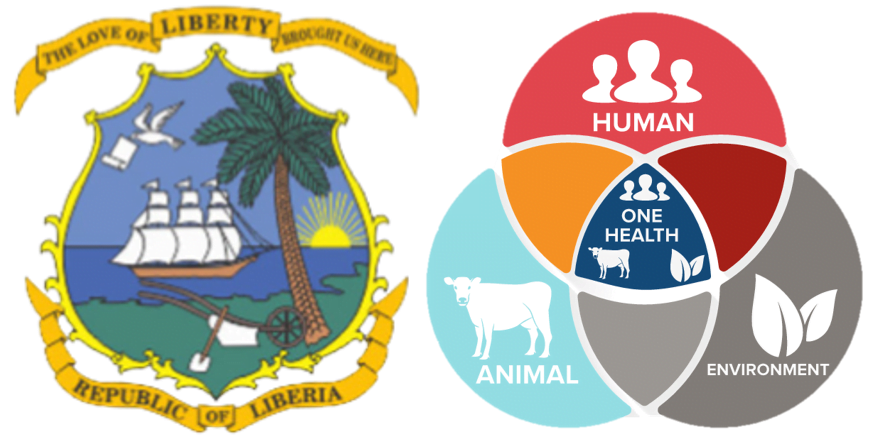+231 77 763 8190
One Health in Conservation
Welcome to the ONE HEALTH IN CONSERVATION page! Here, you will find a repository of research publications dedicated to our commitment to the intersection of human, animal, and environmental health within the context of conservation efforts. Our ongoing endeavors to safeguard ecosystems and biodiversity are meticulously documented and disseminated through these research publications. By frequently exploring our research section, you can remain well-informed about critical conservation issues. We uphold the values of transparency, accountability, and collaboration, which are integral to ensuring effective communication within the realm of conservation. We appreciate your visit and encourage you to return for the most recent updates on our conservation initiatives
Resources
Frequently Asked Questions
Environmental protection and wildlife management support our health and wellbeing, including through sanitation, clean air and water supply, nutrition, and avoiding infections. One Health approaches can help to see the health and economic importance of conservation strategies like protected area designation and management and related aspects like the rights of local communities. One Health aims to sustainably balance and optimize the health of people, animals and ecosystems, ensuring that multi-sectoral priorities, traditional knowledge, animal welfare, and other principles are considered. This can help to minimize trade-offs and maximize benefits of decisions about natural resource use.
Wildlife contribute to our health in multiple ways. A key way is through their role in ecosystem “services” - for example, bats consume insects and pollinate our fruit trees. Chimpanzees help disperse seeds to keep our forests growing and contributing to climate action. These free services from nature are often not appreciated until they are lost, and then it is often too late! In addition, the increasing contact between humans and wildlife – through practices such as bushmeat hunting, human movement into wild areas, and the destruction of wildlife habitat – is increasing the risk of pathogen spillover and epidemics that can make humans and animals sick (like Ebola virus). Many wild plant and animal species also hold significant cultural or sacred value, making them important for our overall physical, mental, and emotional wellbeing. Unfortunately, Liberia’s wildlife is in decline because of human activity, with species like chimpanzees, pangolins, elephants and pygmy hippos pushed toward extinction. We need to protect wildlife and their habitats now to preserve our long-term future.
One Health can be integrated into protected area site management plans and in decisions about the use of terrestrial and marine areas. The conservation workforce has a key role to play in One Health implementation, particularly in the strengthening of the environment sector, broadening of animal health to include wildlife (not just domestic animals), and the prevention of zoonotic disease spillover. For example, Liberia has a network of forest rangers and ecoguards that serve as eyes and ears (and protectors) of ecosystems and wild animal populations and can add vital information to the surveillance system. Indigenous populations and local communities also play a daily role as stewards of the forest. Park Wardens and biologists can link to county One Health teams to promote the sharing of information and ensure biodiversity and health outreach is well coordinated for encourage living safely and in harmony with wildlife. Conserving wildlife and enforcing Liberia’s nature protection laws (including against illegal wildlife trade) will help to avoid harmful human-wildlife interactions, reducing the threat of disease spillover. Environmental professionals can include human, animal, and ecosystem considerations in their environmental and social impact assessments and chemical screening. Liberia’s rich biodiversity is also central to its unique tourist value; preserving wildlife through protected areas offers long-term sustainable tourism value and conservation-compatible livelihoods such as beekeeping.
Liberia is a leader in advancing One Health in practice, including in conservation. Recent work includes the training of rangers on One Health in protected area management, the incorporation of One Health reporting fields in Liberia’s SMART Conservation monitoring system, an analysis of the costs and benefits of land use scenarios in proposed protected areas using a One Health economic model, and collaboration with the country’s certified impact assessors to integrate One Health dimensions. One Health Conservation Centers are also being developed, which will advance Liberia’s applied research and learning opportunities, ecotourism infrastructure, and community access and benefits. These activities are being implemented through the USAID-supported Conservation Works activity in close partnership with the National One Health Coordination Platform and Forestry Development Authority as well as other key agencies (e.g., EPA) and conservation and sustainable development NGOs.
